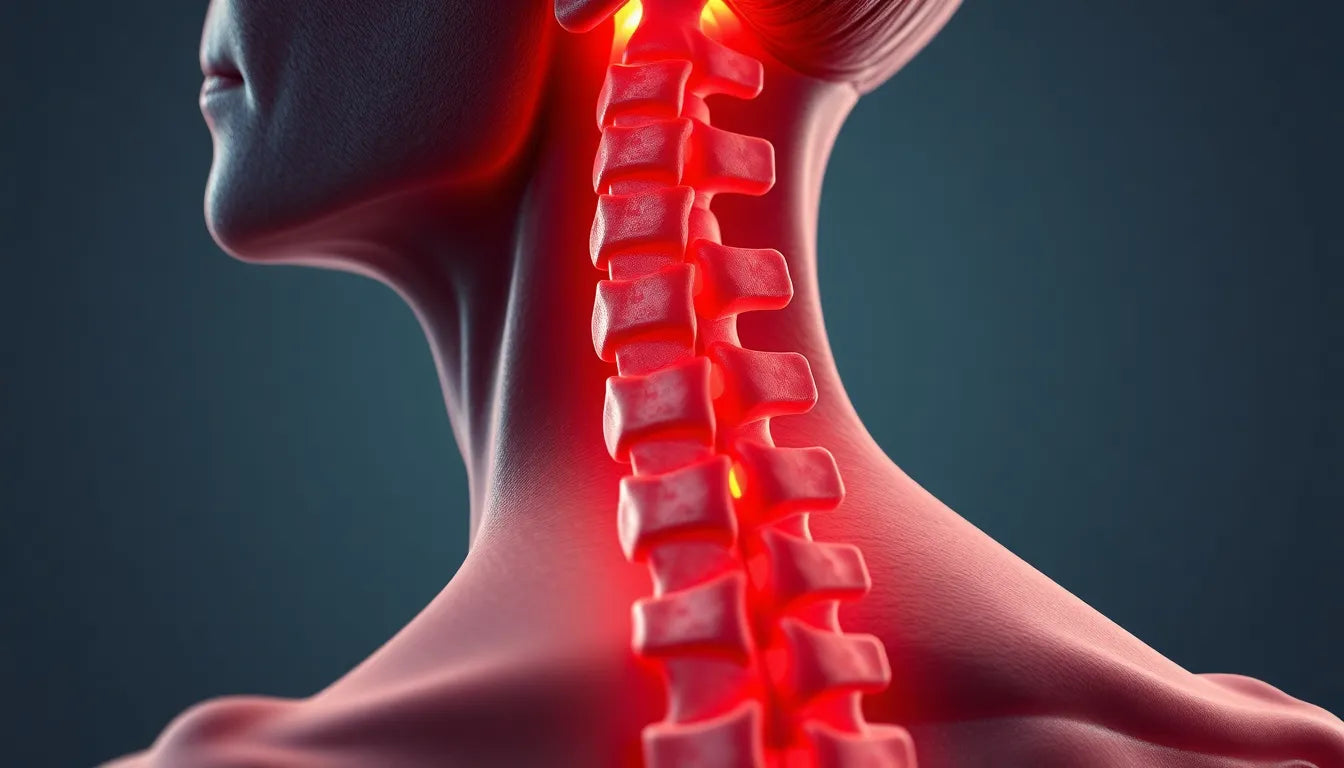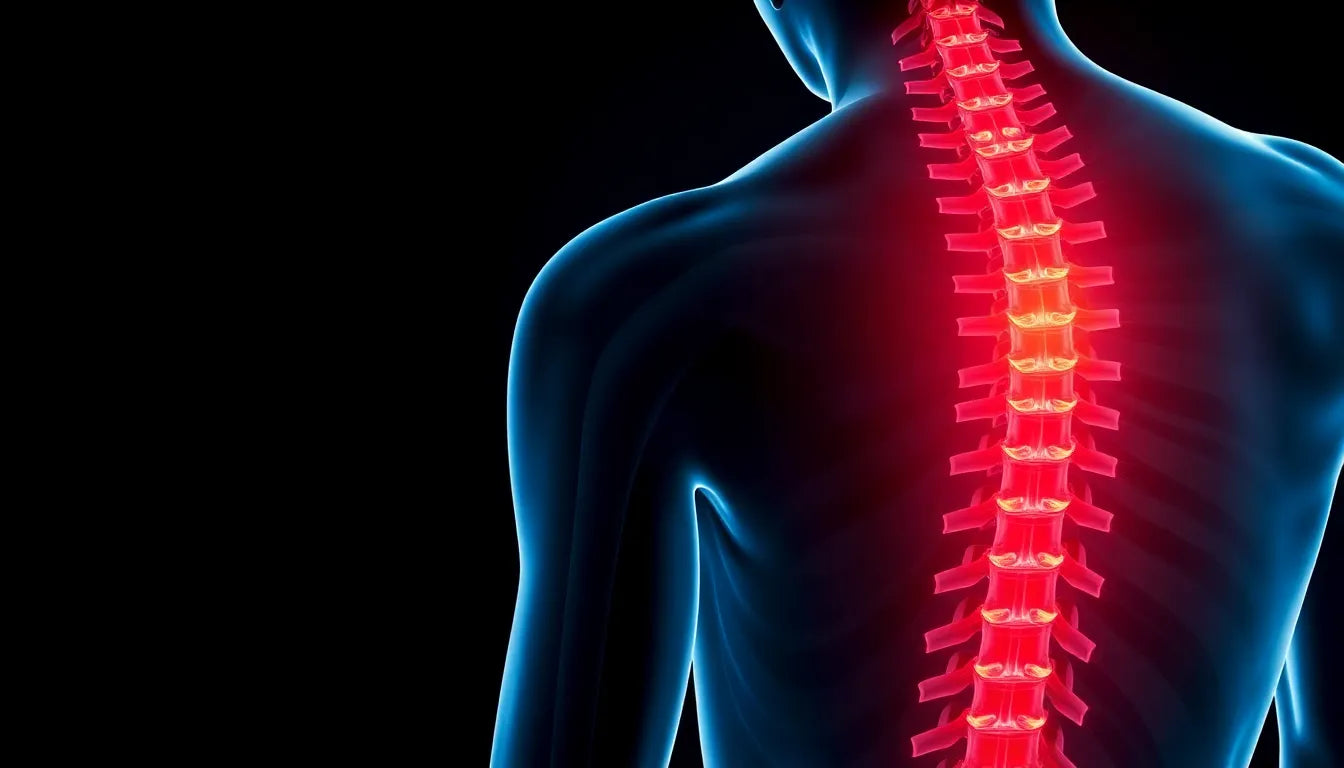Back pain is a common ailment that affects millions of people worldwide, disrupting daily activities and diminishing quality of life. While the causes of back pain are numerous, one condition that often goes unnoticed or misunderstood is a herniated disc. This condition can lead to significant discomfort and, if left untreated, may result in more severe complications. Understanding the nature of back pain and the specific indicators of a herniated disc is crucial for effective management and treatment.
the importance of early detection
Recognizing the signs of a herniated disc early can make a substantial difference in treatment outcomes. Early detection allows for more conservative management options, potentially preventing the need for invasive procedures. Moreover, identifying a herniated disc in its initial stages can help alleviate pain more efficiently and reduce the risk of chronic issues. This begs the question: could your persistent back pain be a sign of a herniated disc?
what to expect in this post
This blog post is designed to guide you through understanding whether your back pain could be due to a herniated disc. We'll delve into the symptoms you should watch for, such as sharp or burning pain, numbness, and tingling, which often occur on one side of the body. Additionally, we'll explore how these symptoms can worsen with specific activities like bending or lifting. Furthermore, you'll learn about the diagnostic process typically employed by healthcare professionals, including when imaging tests like MRIs are necessary. Lastly, we'll discuss the critical symptoms that warrant immediate medical attention and when to seek urgent care. By the end of this post, you'll have a clearer understanding of herniated disc symptoms and the steps to take for proper diagnosis and treatment.
recognizing the symptoms of a herniated disc
Identifying the symptoms of a herniated disc is crucial for determining whether your back pain is due to this condition. The primary symptoms often include sharp or burning pain that can localize in the back, buttocks, leg, or arm, depending on the affected disc's location. This pain is typically one-sided, affecting only one side of the body. Additionally, you may experience numbness, tingling, and muscle weakness, which can significantly impact your daily activities.
Another key aspect of herniated disc symptoms is their tendency to worsen with certain activities. Movements that increase spinal pressure, such as bending, lifting, coughing, or sneezing, can intensify the pain. This activity-related worsening is a hallmark of herniated discs and can help differentiate it from other types of back pain.
understanding asymptomatic cases
Interestingly, not everyone with a herniated disc experiences symptoms. Many individuals may have a herniated disc without noticeable discomfort, a phenomenon often discovered incidentally during medical exams for unrelated issues. This highlights the complexity of diagnosing herniated discs, as not all cases present with the classic symptoms. It also underscores the importance of medical evaluation if you suspect a herniated disc, even if your symptoms are mild or absent.
the diagnostic pathway for herniated discs
The path to diagnosing a herniated disc typically begins with a comprehensive medical history and physical examination. During this initial assessment, a healthcare provider may perform simple physical tests to evaluate reflexes, muscle strength, and sensory function. These tests can provide valuable insights into whether a herniated disc is affecting nerve function.
If symptoms suggest a herniated disc, imaging tests may be recommended to confirm the diagnosis. Magnetic Resonance Imaging (MRI) is considered the gold standard for visualizing herniated discs, as it provides detailed images of the spinal structures and can identify the exact location and severity of the herniation. In some cases, additional tests like Electromyography (EMG) and Nerve Conduction Studies (NCS) may be conducted to assess nerve function and rule out other conditions.
emergency symptoms that require immediate attention
While many herniated discs can be managed with conservative treatments, certain symptoms indicate a need for urgent medical attention. These "red flag" symptoms include sudden bladder or bowel dysfunction, numbness in the genital or rectal area, and severe muscle weakness. These signs could indicate a serious condition known as cauda equina syndrome, which requires immediate medical intervention to prevent permanent damage.
Understanding these symptoms and the diagnostic process is essential for anyone experiencing persistent back pain. By recognizing the signs of a herniated disc and seeking appropriate medical care, you can ensure timely and effective treatment, potentially avoiding more invasive procedures and improving your quality of life.
treatment and management of herniated discs
The management of herniated discs often begins with conservative treatments, which are typically effective for most patients. Pain medication, such as nonsteroidal anti-inflammatory drugs (NSAIDs), can help alleviate discomfort, while physical therapy is designed to strengthen muscles and improve flexibility, reducing pressure on the affected disc. These approaches aim to manage symptoms and facilitate recovery without the need for surgical intervention.
Surgery is generally considered a last resort and is only recommended when conservative treatments fail to provide relief, or if severe symptoms, such as significant muscle weakness or neurological deficits, are present. Surgical options, like discectomy or laminectomy, involve removing the herniated portion of the disc or creating more space for the nerves, respectively. While surgery can be effective, it carries risks and requires a thorough evaluation by a healthcare professional.
prevention and lifestyle tips for herniated discs
Preventing a herniated disc involves adopting healthy lifestyle habits and ergonomic practices. Regular exercise, focusing on core strength and flexibility, can support spinal health and reduce the risk of disc herniation. Additionally, maintaining a healthy weight minimizes stress on the spine, further decreasing the likelihood of disc-related issues.
Ergonomic adjustments in daily activities, such as using proper lifting techniques and ensuring good posture while sitting or standing, are crucial in preventing herniated discs. Investing in supportive furniture and equipment, like ergonomic chairs and desks, can also contribute to spinal health. By incorporating these lifestyle changes, individuals can significantly reduce their risk of developing a herniated disc.
conclusion
Recognizing the signs of a herniated disc and seeking timely medical advice are essential steps in managing back pain effectively. Early detection allows for conservative treatment options, often preventing the need for invasive procedures. By understanding the symptoms and diagnostic process, individuals can take proactive measures to ensure proper care and improve their quality of life.
Frequently Asked Questions
Can a herniated disc heal on its own?
Many herniated discs improve over time with conservative treatment, such as rest, physical therapy, and pain medication. However, some cases may require medical intervention if symptoms persist or worsen.
What activities should I avoid if I suspect a herniated disc?
It is advisable to avoid activities that exacerbate pain, such as heavy lifting, twisting motions, and prolonged sitting. Consult a healthcare provider for personalized advice tailored to your condition.
How long does it take to recover from a herniated disc?
Recovery time varies depending on the severity of the herniation and the treatment approach. Mild cases may improve within a few weeks, while others might take several months to resolve.
Is surgery always necessary for a herniated disc?
No, surgery is typically considered only after conservative treatments have failed or if there are severe symptoms, such as significant muscle weakness or neurological deficits. Most cases are managed successfully with non-surgical approaches.
Can lifestyle changes prevent herniated discs?
Yes, adopting healthy lifestyle habits, such as regular exercise, maintaining a healthy weight, and practicing good posture and ergonomics, can help reduce the risk of developing a herniated disc.
Sources
- WebMD. "Could You Have a Herniated Disk? Symptoms and Diagnosis."
- Mayo Clinic. "Herniated Disk - Symptoms and Causes."
- Medical News Today. "Herniated disk: Causes, symptoms, diagnosis, and treatment."
- Neurosurgery/Weill Cornell. "Diagnosing and Treating a Herniated Disc."
- American Association of Neurological Surgeons (AANS). "Herniated Disc."


















